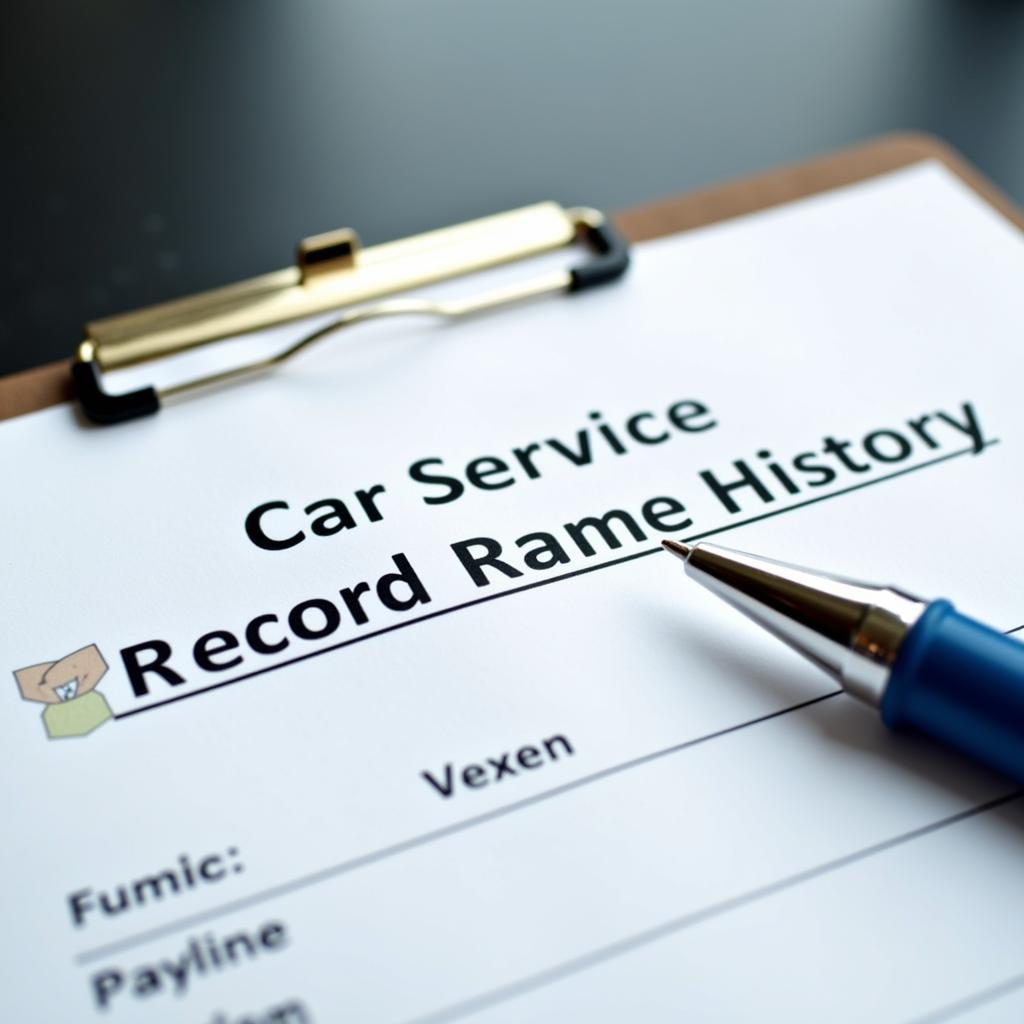Knowing your car’s service history is essential for a variety of reasons. It helps you track maintenance, identify potential problems, and make informed decisions about repairs and resale value. But where do you even begin to access this crucial information? This guide will walk you through the various ways to uncover your car’s past, empowering you to make smart decisions about your vehicle’s future.
Why is Knowing Your Car’s Service History Important?
Before we dive into the “how,” let’s explore the “why.” Understanding the significance of your car’s service history can motivate you to track it down and use it to your advantage.
- Maintenance Tracking: A comprehensive service history acts like a health journal for your car. It reveals when routine maintenance like oil changes, tire rotations, and filter replacements were performed, allowing you to stay on top of scheduled servicing.
- Problem Identification: Recurring issues and past repairs are often documented in a car’s service history. This information can be invaluable when diagnosing current problems or anticipating potential future issues.
- Resale Value: A well-documented service history can significantly increase your car’s resale value. It provides potential buyers with confidence in the vehicle’s maintenance and overall condition.
How to Access Your Car’s Service History
There are several avenues you can explore to retrieve your car’s service history, each with its own level of detail and accessibility.
1. Check the Glove Compartment
Start your search in your car’s glove compartment. Often, previous owners or dealerships leave service records, receipts, and other relevant documents within the vehicle itself. You might find a treasure trove of information right at your fingertips.
2. Contact Previous Owners
If you purchased your car used and the glove compartment didn’t yield much information, consider contacting the previous owner(s). A simple online search or a vehicle history report (more on that later) can help you locate their contact information. Most previous owners are happy to share service records, especially if it helps ensure the car they once owned is being well-maintained.
3. Visit Dealerships and Mechanics
Dealerships and mechanics often keep electronic or physical records of the services they perform. If you know where the car was previously serviced, reach out to those businesses with the Vehicle Identification Number (VIN) to inquire about accessing the service history.
4. Utilize Online Vehicle History Reports
Online vehicle history reports, available from providers like Carfax and AutoCheck, offer a comprehensive overview of a car’s past. These reports compile data from various sources, including state DMVs, insurance companies, and service facilities. While they may not always include every single service record, they provide valuable insights into the car’s title history, accident history, and reported maintenance.
5. Explore Third-Party Apps and Services
Several third-party apps and online services specialize in helping car owners manage and track their vehicles’ service history. These platforms allow you to input service records, set maintenance reminders, and even connect with nearby mechanics.
what are primary and secondary care services
Understanding Your Car’s Service History
Once you’ve gathered your car’s service history, it’s crucial to understand the information it presents.
- Dates and Mileage: Pay close attention to the dates and mileage readings associated with each service entry. This allows you to track the frequency of maintenance and identify any potential gaps in the service schedule.
- Service Codes: Mechanics often use standardized service codes to denote the work performed. Familiarize yourself with common codes or consult a mechanic to decipher any unfamiliar entries.
- Parts Replaced: The service history should also list any parts that were replaced. This information can be helpful when diagnosing current problems or anticipating future repairs.
Conclusion
Accessing and understanding your car’s service history is an essential part of responsible car ownership. It allows you to stay ahead of maintenance, identify potential problems, and make informed decisions about repairs and resale. By following the steps outlined in this guide, you can unlock a wealth of information about your car’s past, empowering you to make smart decisions about its future.
Remember, a well-maintained car is a safe and reliable car. Take the time to uncover your car’s service history and reap the benefits for years to come.
FAQs
1. Is it expensive to obtain a vehicle history report?
Vehicle history reports typically cost between $20-$40, depending on the provider and the level of detail included.
2. Can I track my car’s service history myself?
Yes, you can create a simple spreadsheet or use a dedicated app to manually track your car’s service history.
3. What should I do if I find gaps in my car’s service history?
If you discover significant gaps in service, consider taking your car to a trusted mechanic for a thorough inspection.
4. Do all mechanics use the same service codes?
While there are standardized service codes, some mechanics may use their own internal codes.
5. How often should I check my car’s service history?
It’s a good practice to review your car’s service history at least annually or before embarking on a long road trip.
Need Help With Your Car’s Service Needs?
Contact us today via WhatsApp at +1(641)206-8880 or email us at [email protected]. Our team of experts is available 24/7 to answer your questions and assist you with any car service needs.
We are committed to keeping your car running smoothly and safely.



